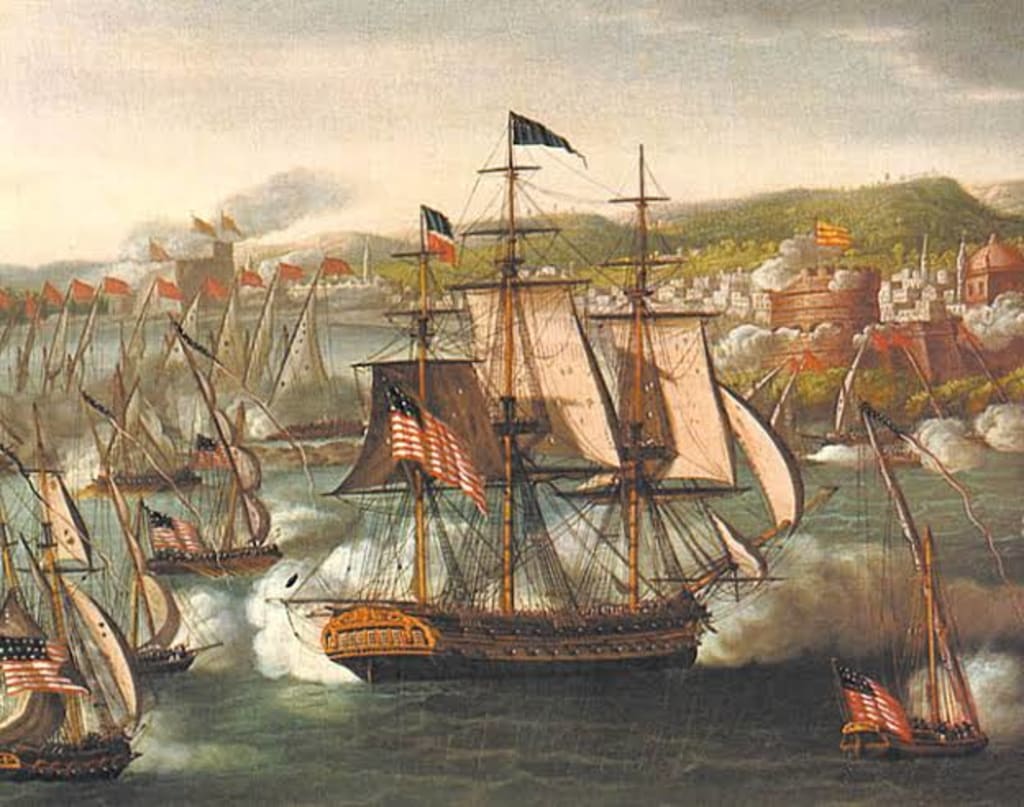
The Barbary Pirates, also known as the Barbary Corsairs or Ottoman Corsairs, were a group of North African pirates and privateers who operated along the Mediterranean coastline during the late 16th to the early 19th centuries. Infamous for their raids on European and American ships, the Barbary Pirates played a significant role in shaping the geopolitical landscape of their time.
Origins and Motivations:
Emerging primarily from the cities of Algiers, Tunis, and Tripoli (modern-day Algeria, Tunisia, and Libya), the Barbary Pirates capitalized on their strategic location to control key maritime trade routes. Fueled by a combination of economic ambitions, religious fervor, and political power plays, they justified their actions under the guise of jihad against non-Muslims, particularly targeting Christian nations.
Corsairs of the Mediterranean:
The Barbary Pirates established a formidable maritime presence, often collaborating with the Ottoman Empire, which provided them with a degree of political protection. Through their fast and agile vessels known as "xebecs" and "galleys," they conducted daring raids on merchant ships, coastal towns, and even ventured as far as the Atlantic coast of the Americas.
European Response and Tribute:
The European powers faced the challenge of dealing with the Barbary Pirates' constant threat to their maritime trade and the safety of their citizens. Rather than engage in prolonged military conflicts, many European nations chose to pay tribute to the pirates to ensure safe passage for their ships. This practice, known as "paying the tribute," created a complex system of appeasement that perpetuated the pirates' activities.
Barbary Wars and the Decline:
As the 18th century progressed, the impact of the Barbary Pirates on global trade and security became increasingly untenable. The United States, for instance, engaged in two Barbary Wars (1801-1805 and 1815) to safeguard its ships and citizens from the pirates' attacks. These conflicts, along with shifting geopolitical dynamics, contributed to the decline of the Barbary Pirates' influence.
Legacy and Implications:
The era of the Barbary Pirates left a lasting impact on the history of international relations and maritime trade. It led to debates over the use of military force versus diplomacy in dealing with piracy, and it played a role in shaping the policies of European and American governments toward the Mediterranean region. Additionally, the Barbary Pirates' activities inspired narratives of adventure and captivity, influencing literature, art, and public perception.
Conclusion:
The history of the Barbary Pirates stands as a testament to the complexities of the early modern Mediterranean world. Their audacious raids, religious justifications, and the diplomatic efforts to counter their actions reveal the intricate interplay of politics, religion, and commerce during a crucial period of global history. The legacy of the Barbary Pirates continues to be a fascinating and important chapter in the annals of maritime history.
The Barbary Pirates' Rise:
Originating from coastal towns with strategic positions, the Barbary Pirates used speed and maneuverability to their advantage. Their main targets were merchant ships, and they often acted in the name of religious zeal, targeting non-Muslim vessels and seeking plunder and power.
Maritime Menace:
Equipped with sleek vessels such as xebecs and galleys, the Barbary Pirates were adept at swiftly swooping in and launching attacks. Their widespread activities disrupted maritime trade routes, sparking a scramble among European nations to safeguard their interests.
European Dealings and Tribute:
Rather than facing the pirates head-on, European powers opted to pay "tribute" to secure safe passage for their ships. This practice essentially legalized piracy and posed complex challenges to international relations.
Challenges and Decline:
Over time, the Barbary Pirates faced resistance from nations like the United States, leading to confrontations known as the Barbary Wars. As global dynamics shifted, their influence waned, marking the end of their infamous reign.
Legacy and Reflections:
The Barbary Pirates' era left a lasting legacy, shaping discussions about piracy's role in international affairs. Their audacious escapades, mingled with politics and religion, offer insights into the intricate tapestry of early modern maritime history.





Comments (1)
Please guys help me like and comment